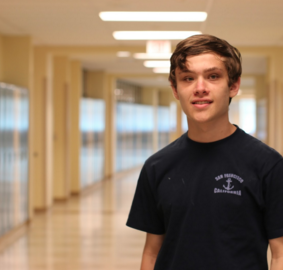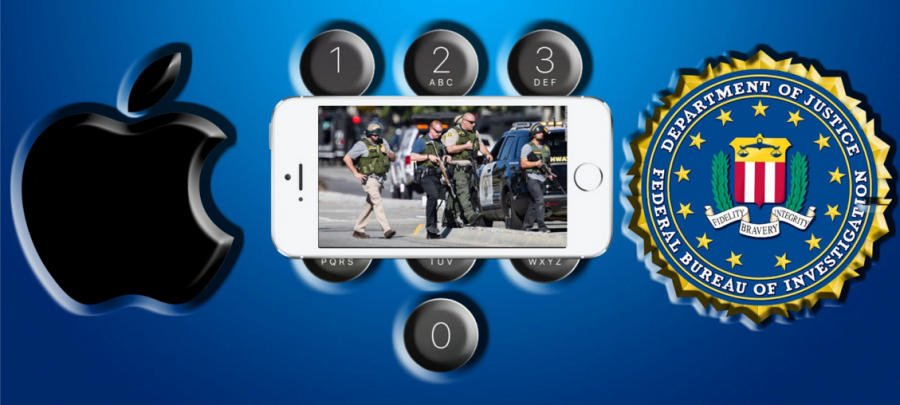Apple battles Feds over San Bernardino investigation demands
Apple, the California-based tech giant, is in a standoff with the FBI over the agency’s demand for Apple to unlock San Bernadino shooter, Syed Rizwan’s, iPhone.
The FBI believes the shooter’s iPhone 5C is a critical piece of evidence in the investigation, but has not been able to gain access to the device because it is locked with a passcode.
The FBI requested that Apple unlock the iPhone, but Apple executives are holding out. The tech giant’s top officials claim unlocking Rizwan’s phone will compromise the security of the approximately 75 million iPhone users since meeting the FBI’s demands would require phone engineers to create a “backdoor” into the phone.
Dylan Diamond ’17 has experience developing many apps for Apple’s iOS operating system, including the widely used myHAC and has a deep understanding of “backdoors” and their potential consequences.
“A ‘backdoor’ as Apple calls it, is a modification to the existing iOS operating system that runs on your iPhone, that would allow the government access to the device that it otherwise would not have, as protected by the user’s passcode,” Diamond said.
Apple believes that the government’s demands are unreasonable and describes the consequences of adhering to those demands as “chilling.”
“The government is asking Apple to hack our own users and undermine decades of security advancements that protect our customers[…] from sophisticated hackers and cybercriminals. The same engineers who built strong encryption into the iPhone to protect our users would, ironically, be ordered to weaken those protections and make our users less safe,” Apple wrote in a Feb. 16 letter to its customers.
Diamond agrees that allowing the FBI access to the attacker’s phone would compromise security of other iPhone users.
“A major concern with the backdoor is that, after the government is done using it, it exists, so it would naturally spread to other malicious users and millions of iPhones would be at risk, since there is a master key created,” Diamond said.
James Comey, FBI director and former Westport resident, is adamant in his plea for Americans and Apple to accept this part of the investigation that requesting the unlocking of Rizwan is not an overreach of power as many believe.
“The San Bernardino litigation isn’t about trying to set a precedent or send any kind of message. It is about the victims and justice. Fourteen people were slaughtered and many more had their lives and bodies ruined. We owe them a thorough and professional investigation under law. That’s what this is. The American people should expect nothing less from the FBI,” Comey wrote in a statement on the Bureau’s website.
Hugh Foley ’16 said he would support the FBI’s investigation if it did not compromise the security of other iPhone users.
“If it were possible for Apple to allow the FBI to gain access to only the terrorist’s phone, I would fully support hacking the phone,” Foley said. “However, the FBI is asking Apple to release a version of iOS with weakened security, allowing the government to access the data, records, microphone, camera etc. on any iPhone,” he said. “ It would be dangerous to give the government the ability to so easily violate one’s Fourth Amendment rights.”
Comey, however, reassured Americans that his agency’s intent is not to compromise users security.
“We don’t want to break anyone’s encryption or set a master key loose on the land,” Comey said. “Maybe the phone holds the clue to finding more terrorists. Maybe it doesn’t. But we can’t look the survivors in the eye, or ourselves in the mirror, if we don’t follow this lead.”

Justin Schwebel brings his skills of being director of the Staples Television Network (STN) to his first year of Inklings this year. Schwebel is all things...

















































